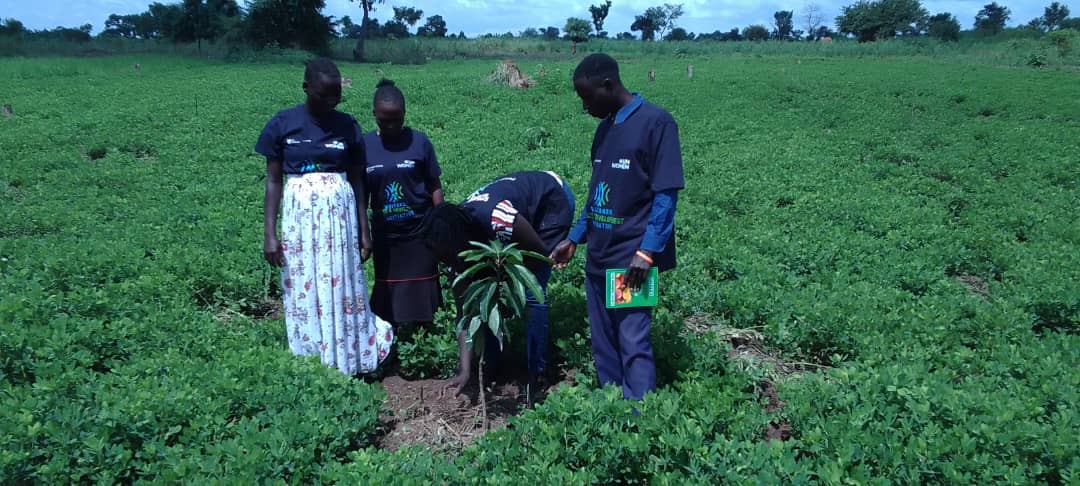“WPDI and UN Women have given us the tools and inspiration to dream big.”
April 22, 2025 – With support from UN Women and the Embassy of Norway, WPDI is implementing a transformative project titled “Advancing Women’s Leadership, Empowerment and Resilience in Uganda’s Refugee Response (LEAP II)” in the Adjumani District. Focused on strengthening the capacities of women and youth in refugee and host communities, the project is making an impact in key areas: climate-smart agriculture, business skills training, Village Savings and Loan Associations (VSLA), Gender Action Learning Systems (GALs), access to energy, and early warning system documentation.

One of the most compelling success stories so far comes from the Amesutakuru Farmer Group, where participants have embraced climate-smart agriculture practices with impressive results. With newly acquired knowledge in silvicultural practices, high-quality seed selection, row planting, soil fertility management, mulching, and integrated pest and disease control, the group established a thriving 7-acre agroforestry system. They intercropped fruit and medicinal trees with sesame (simsim) on a commercial scale—blending sustainable farming with income generation.
The group’s first harvest yielded 1,280 kg of sesame, expected to generate Ush 6,400,000 in 2024. Alongside the sesame, 288 mango trees were planted and carefully protected through fencing and heavy mulching to retain soil moisture and guard against stray animals. This forward-thinking approach reflects the group’s commitment not only to environmental sustainability but also to long-term resilience.
The initiative’s impact is tangible—not just in harvest numbers, but in the transformation of mindsets. Mrs. Vicky Koma, a devoted group member, reflected on how the training empowered them to make every effort count: “This initiative has been life-changing for us. We’ve turned challenges into opportunities and built a foundation for sustainable growth.” The project reached 389 direct beneficiaries, and through shared knowledge and community-based learning, it indirectly impacted 1,945 others in the surrounding area.
This shift in perspective has been particularly powerful among women in the group. Chandia Rose described how the program reshaped their self-perception: “We now see ourselves as agents of change in our community. WPDI and UN Women have given us the tools and inspiration to dream big, and we are determined to keep progressing. The impact we’ve made is just the beginning of a brighter future for all of us.”
Their ambition is matched by a long-term vision. According to Olega Christopher, the group secretary, the initial success has sparked new plans for expansion. “What I have seen in this project is what I have never experienced before. Little did I know that we could obtain 8 bags of simsim from 7 acres of land. As a group, we agreed that the land area for fruit trees be increased from 7 to 15 acres in 2026, with each group member managing at least ½ an acre of fruit trees. We also plan to diversify and venture into the value addition of groundnuts.”
Through initiatives like LEAP II, WPDI is helping to plant more than crops—it is cultivating hope, leadership, and economic opportunity. With continued support, these empowered women and communities are set to thrive, demonstrating that sustainable development truly begins from the ground up.
In partnership with
